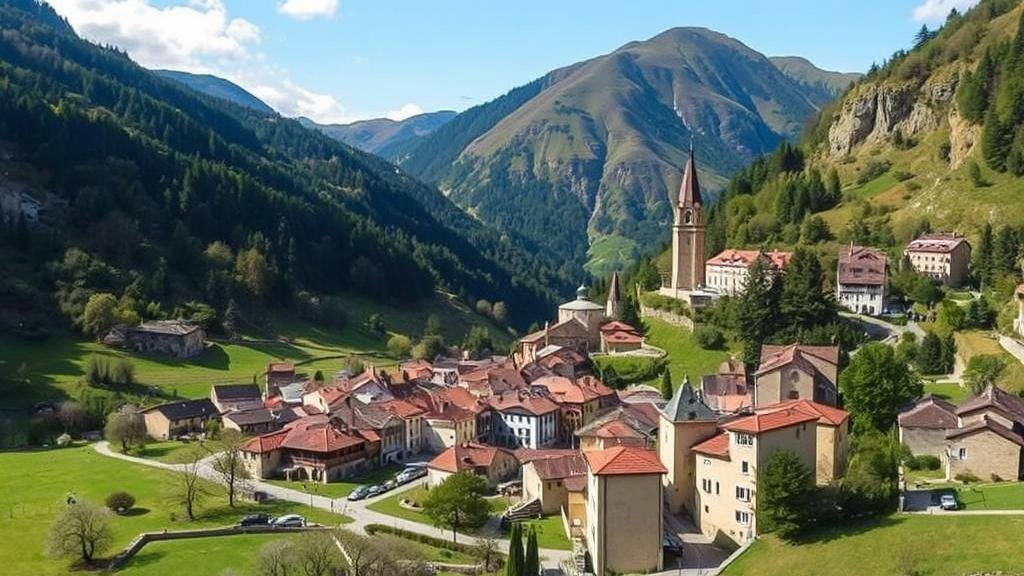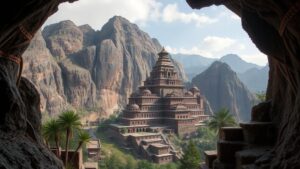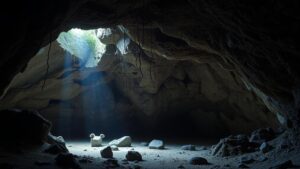Exploring the hidden valleys of the Pyrenees for cities connected to early Basque history.
Exploring the Hidden Valleys of the Pyrenees: A Journey Through Early Basque History
The Pyrenees mountain range, situated between France and Spain, is not only a natural barrier but also a reservoir of rich cultural and historical heritage. Among the oldest inhabitants of this region are the Basques, whose unique language, traditions, and historical narratives offer a fascinating glimpse into early European history. This article delves into the hidden valleys of the Pyrenees, revealing towns and locations deeply connected to Basque history.
The Basque Identity: A Brief Overview
The Basque Country, known as Euskal Herria, encompasses the northeastern part of Spain and southwestern France. Basques are famous for their unique language, Euskara, which has no known relatives and is believed to date back to prehistoric times. Basque history is characterized by a strong sense of identity and culture, with roots that trace back thousands of years, including the Roman era and beyond.
Valley of Roncal: The Birthplace of Traditional Basque Culture
Located in Spains Navarre region, the Roncal Valley is a treasure trove of Basque heritage. This area is noteworthy for its well-preserved villages, such as Isaba and Roncal, which boast traditional architecture and vibrant local customs.
- Historical Significance: The valley was a significant center for the production of Roncal cheese, one of the first cheeses in Spain to be granted Protected Designation of Origin status in 1980.
- Local Festivals: Events like the Festival of San Juan in June celebrate local traditions, with music, dance, and culinary delights.
The picturesque landscape, framed by rugged mountains, also offers numerous hiking trails that allow visitors to explore the natural beauty of the area while immersing themselves in Basque culture.
The Aritza Valley: A Journey Through Time
The Aritza Valley, tucked within the French region of the Basque Country, offers travelers a glimpse into the ancient settlement patterns of the Basques. village of Saint-Étienne-de-Baïgorry is particularly noteworthy.
- Historical Background: This area is steeped in history, with evidence of Roman settlements dating back to the 1st century AD. The remains of old fortifications can still be seen today.
- Cultural Heritage: Traditional Basque architecture is evident in the charming homes and buildings constructed from local materials, reflecting a harmonious relationship with the natural environment.
Visitors can engage with local artisans and discover crafts that have been passed down through generations. This intimate connection to history and culture is palpable in every corner of the valley.
The Bidasoa Valley: Gateway to Adventure
The Bidasoa Valley, which straddles the border between France and Spain, is known for its diverse landscape and outdoor activities. This area is especially rich in history related to the Basque seafaring tradition.
- Historical Connections: The town of Hondarribia was once a crucial fishing port, with historical records indicating it played a vital role in maritime trade in the 14th century.
- Modern Relevance: Today, visitors can stroll along the waterfront Promenade, enjoying local seafood delicacies, or participate in the local fishing activities, experiencing the deep-rooted seafaring culture firsthand.
The Bidasoa River itself is perfect for kayaking and rafting, offering an adventurous way to explore the geographical and cultural richness of the region.
Conclusion: The Call of the Pyrenees
The hidden valleys of the Pyrenees present a unique opportunity to explore the essence of early Basque history. From the culinary traditions of Roncal cheese to the ancient settlements in Aritza and the maritime heritage of Bidasoa, each area offers its own story and experience.
For those looking to delve deeper into Basque culture, these valleys provide not only stunning landscapes but also a profound connection to a civilization that has managed to preserve its identity throughout numerous historical shifts.
Actionable Takeaways
- Plan visits during local festivals for an immersive experience in Basque culture.
- Explore hiking routes with local guides to gain insights about the region’s history and ecology.
- Taste local delicacies, particularly cheeses and seafood, to appreciate the culinary heritage of the Basque people.
To wrap up, a journey through the hidden valleys of the Pyrenees is not just a scenic getaway; it is an exploration of a resilient culture that thrives on its rich historical roots.



